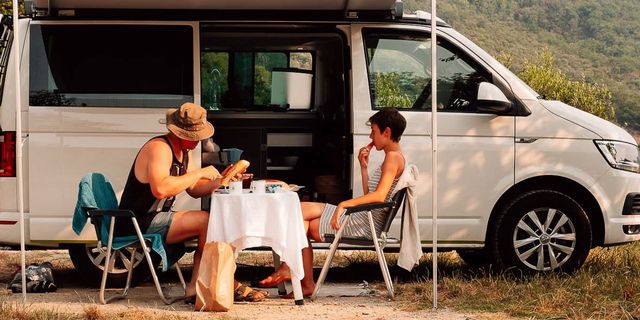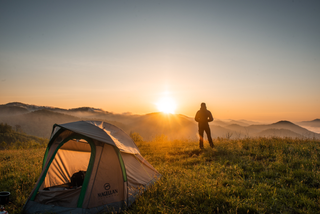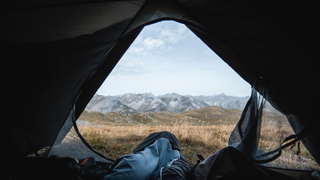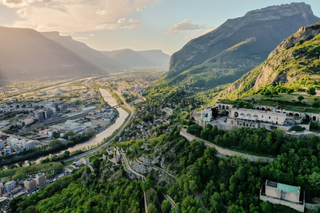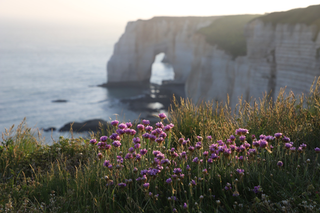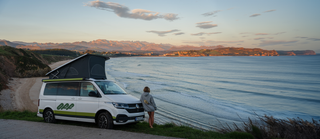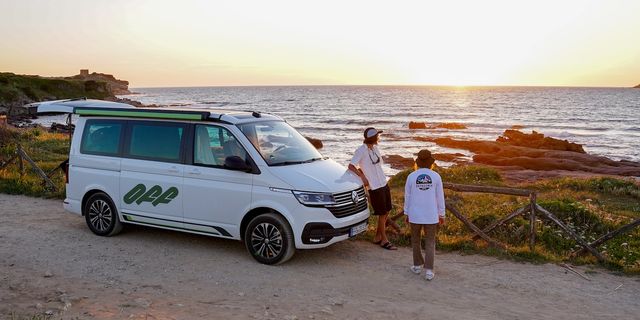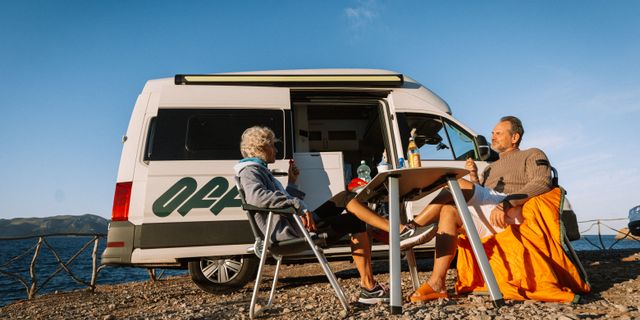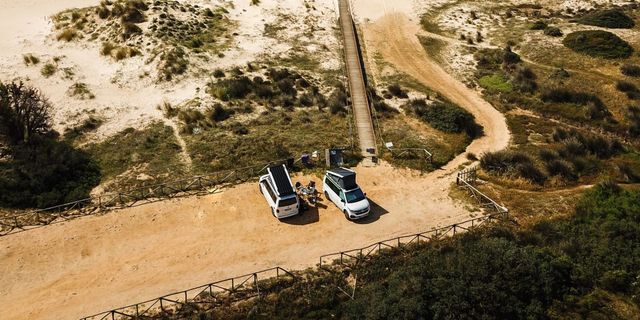From north to south, the landscape is also captivating with its diversity which is the reason why more and more people are opting for a vacation style that is as close to nature as possible. So it’s hardly surprising that the choice is more and more often a motorhome, camper or tent. The best thing to do is to simply pitch up on the beach and enjoy your bliss. But is wild camping in France possible? We have all the information on this topic for you, whether bivouac or camper.
There's no general ban on wild camping. The basic rule in France is that what's not forbidden is allowed. But what are the specific restrictions? Camping overnight without any compromise is prohibited in the following places:
– On the beach/coast
– In nature reserves
– Within 500 metres of sights
– Within 200 metres of a water source
– On public paths and roads
– On private property
– In municipalities that generally prohibit it
Nevertheless, in France depending on the means of travel chosen it is possible to spend the night away from commercial campsites without the fear of fines. The key here is the difference between wild camping and free standing.
Free standing: Free-standing means parking in a car park without exhibiting camping-like behaviour. This includes setting up tables and chairs or extending the awning. When choosing a parking space look out for prohibition signs that explicitly forbid sleeping overnight. So if you are only “parking” and not camping you have nothing to fear.
Wild camping: The same restrictions as mentioned above apply to wild camping. This often makes finding a suitable site very difficult. In the vicinity of communities it's better to obtain permission from the landowner and avoid an unnecessarily long stay. The situation is different for bivouacking.
Bivouac: Bivouacking means sleeping under an open sky. If you still want to protect yourself from the rain you can put up a tarp. Unlike camping, bivouacking is allowed even in national parks and above the tree line (2500 m above sea level). Camp may be set up from 7 p.m. - 9 a.m. and at least a 60 minutes’ walk from the entrance to the national park.
Those who inform themselves about local camping bans and comply with all the rules mentioned above usually have nothing to fear. However, it can still happen that the local police will send you away. By the way, serious violations can result in fines of up to €1500 which is why you should avoid them at all costs. On beaches the coast guard also checks on this and once you are caught any excuse is pointless.
As the situation in France is quite confusing we are pleased to inform you that there is a wide range of cheap/free campsites available – and without the risk of doing anything illegal.
On the one hand, it has become established in France that municipalities offer their own campsites, so-called “
Camping Municipal“. These are often very cheap and above all legal. You should also always come across signs saying “Camping reglementé – s’adresser à la mairie“. These indicate that you can register with the local mayor’s office and then be allocated a place to stay overnight often even with sanitary facilities.
In addition, some
winery owners or
farms in France offer a pitch for a small fee. In the best case scenario, you can stock up on goodies at the farm shop and enjoy the sunset afterwards. Otherwise, we can also recommend the app “iOverlander“ where you can find further information on some free pitches.
In addition, there is always the possibility of asking the owner of a private property directly for permission to settle down for the night. French people are often camping enthusiasts themselves which is why this should definitely be worth a try. You should be lucky, especially in regions in the north or in central France which are not yet particularly developed for tourism.
No. Camping in France, even in the countryside, is generally not dangerous. Nevertheless, certain precautions are always useful when you are in remote regions. A first aid kit is a wise addition to any camping equipment.
However, under no circumstances should you spend the night at motorway service stations. Robberies have occurred here on several occasions. To protect yourself against theft especially in big cities, you should always stow valuables safely and not be a poster child for “here’s something to get”.
At first glance, there are a few bumps in the way of a camping fan. However, if you familiarise yourself with the applicable rules and follow our tips you should be on the safe side. Similar to other Central European countries you'll have to make certain sacrifices when wild camping but thanks to the numerous possibilities nothing stands in the way of an adventurous camping trip.
